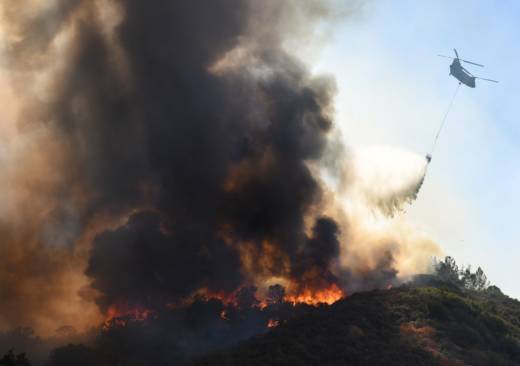There are a lot of raging controversies in California’s water policy, but finding water for fighting wildfires isn’t one of them.
If you’re watching the Twitter feed from @realDonaldTrump, you might be confused about this. Here’s a tweet that — to say the least — raised eyebrows, when the president sent it out over the weekend:
California wildfires are being magnified & made so much worse by the bad environmental laws which aren’t allowing massive amount of readily available water to be properly utilized. It is being diverted into the Pacific Ocean. Must also tree clear to stop fire spreading!
— Donald J. Trump (@realDonaldTrump) August 5, 2018
So here are the facts:
First up, KQED called Cal Fire to find out whether, in fact, they’re having any problems getting enough water to fight current wildfires.
“We are not having any issues accessing any water supplies,” says Cal Fire spokesman Scott McLean. “We have plenty. The fires are right near reservoirs. We’re doing the job, we’re fighting the fight, we have the resources.”
